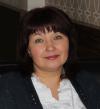Keywords:
psychological education
continuity of education
«from abstract to concrete» principle in teaching
system of lifelong education
subjective psychological approach
virtual reality
education software in virtual environment. |
Abstract: the presented paper aims to summarize the experience in the development of lifelong psychological education system in Smolensk and draw the attention of psychologists, teachers, and education workers to the issues of lifelong learning (including psychological education). The system of lifelong psychological education exists in Smolensk since 1996. It has been carried out in accordance with a subjective psychological approach, which addresses the issues of a learner's self-regulation, personal identity, self-determination, and self-education (lifelong education) at all ages – for meaningful participation in life. The authors emphasize the feasibility of introducing a unified system of lifelong psychological education in Russia available for everyone: from 5-7 year-old children to senior citizens. The system includes studying psychology in preschool educational institutions, in secondary schools and universities (including the faculties of psychology), as well as studying psychology by adults and senior citizens.
According to the authors’ model, studying the mental world at preschool age is performed with the help of an experimental textbook. The following methods are used: summary of teaching experience, a laboratory experiment, a formative experiment. The research is based on the experience of work with the graduates of the Smolensk preschool gymnasium for talented children and of other preschool institutions (over 300 people), school students from Smolensk and Moscow, and 26 elderly people. Long-term experimental studies have shown that the early study of the basic psychology has a positive effect on cognitive development of 5-7 year-old children. It increases their creativity, develops self-regulation, brings inner harmony, helps to prepare for school, raises subjectivity and self-confidence. Educational programs for elderly people give them an opportunity of better integration in modern society, help them manage their emotional experiences, stay positive, and rethink their life, do not let them lose the meaning of life. The authors come to the conclusion that teaching basic psychology for all above listed groups of people makes both a psychological training system and a lifelong educational cycle complete.
|
References
1. Aksenova G. I. Student kak sub"ekt obrazovatel'nogo protsessa. M. Ryazan': RIN-FO, 1998. 156 pp.
2. Gorshkova V. V. Mezhsub’ektnaya pedagogika: tendentsii razvitiya. SPb.: IOV RAO, 2001. 237 pp.
3. Zabrodin YU. M., Popova M. V. Psikhologiya v shkole: Ucheb.-metod. posobie dlya uchiteley. E'ksperimental'nyy uchebnyy kurs dlya podrostkov. M., 1994. 264 pp.
4. Zabrodin YU. M., Popova M. V. Programma kursa «Psikhologiya» (8–11 klassy). M., 1997. 32 pp.
5. Kolesnikova I. A. Nepreryvnoe obrazovanie kak fenomen KHKHI veka: novye rakursy issledovaniya // Nepreryvnoe obrazovanie: KHKHI vek. Nauchnyy elektronnyy zhurnal. Petrozavodskiy gosudarstvennyy universitet. 2013. № 1. URL: http://lll21.petrsu.ru/.
6. Komenskiy YA. A. Izbrannye pedagogicheskie sochineniya. M.: Pedagogika, 1982. T. 2. 576 pp.
7. Men'shikov V. M. Dolzhna li Rossiya otkazyvat'sya ot bremeni mirovogo lidera v obrazovanii… Kursk: Katran, 2009. 64 pp.
8. Rean A. A., Gatanov YU. B., Baranov A. A. Psikhologiya. 8–11 klass: Uchebnik. SPb.: Piter, 2000. 224 pp.
9. Selezneva E. V. YA poznayu mir. Psikhologiya. Detskaya entsiklopediya. M.: AST, 2003. 425 pp.
10. Selivanov V. V. Edinaya sistema psikhologicheskogo obrazovaniya // Obrazovanie. Khristianstvo. Kul'tura. Smolensk: SGU, 1996. P. 25–28.













